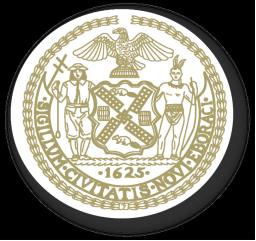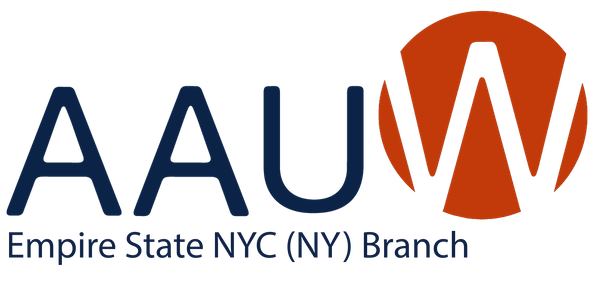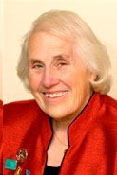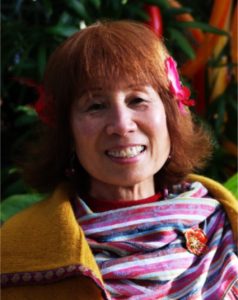The New York City Council and the Gender Pay Gap
By
Edwina Frances Martin, Esq.
ESVB Public Policy Co-VP
Over the last several years the New York City Council has passed several pieces of legislation to address barriers women face in the workplace:
· The Pregnancy Rights Discrimination Act (requiring reasonable accommodation in the workplace for pregnancy and pregnancy-related conditions);
· Paid Sick Leave (requiring a minimum of 5 paid sick days for workers);
· The Credit Check Discrimination Bill (barring the use of credit checks for potential employees in jobs not directly related to financial matters); and
· The Caregivers Discrimination Bill (protecting those who care for ill children/parents/spouses/partners from discrimination in the workplace based on their status as a caregiver).
Most of these bills were passed last term, but this term a number of important bills have also been passed. One important bill, introduced by Public Advocate Letitia James, is the NYC Salary History Bill.
Salary history has become an important issue in the fight to end the gender wage gap. Why? This practice perpetuates the wage gap that many women and people of color face. It assumes that prior salaries were fairly established at your previous employers. If you faced a pay gap and lost wages at your last job, due to bias or discrimination, your new employer is now continuing the cycle. Salary history questions can introduce bias and discrimination into the recruitment process of a company that may be sincerely attempting to avoid it.
Employers should pay what the position is worth to their organization and not base compensation on a worker’s worth in a different job with a different company. If a woman starts her career with a pay gap, it’s likely to follow her throughout her life and negatively affect her retirement.
On November 4th, 2016, Mayor de Blasio got the ball rolling in New York City by issuing an executive order banning city agencies from asking for salary history of potential employees until after a job with salary has been offered. The Salary History bill builds on this by banning all employers from inquiring about a job applicant’s prior salary and using it to set future wages.
The Women’s Caucus of the NYC Council rolled out a legislative platform this term, the first time this body has done so.
One piece of legislation in the package would support the Salary History bill by asking the state legislature to enact similar legislation and the governor to sign it – Resolution 1273.
Another piece of the platform, Int. 825, would expand the definition of employer under the human rights law to provide protections for domestic workers, 95% of whom are women. Under our human rights law an employer is defined as having 4 or more employees; Int 825 would create an exception for domestic workers so that the definition is one employee, thus giving them the full force of the protections of NYC’s strong human rights law.
Other bills in the platform include legislation which has now been adopted – regarding the Rikers nursery program, providing free feminine hygiene products to students in NYC schools, and requiring the city to create a comprehensive plan to address the needs of unpaid caregivers – those caring for ill children, parents, siblings, partners, who are overwhelmingly women.
The package also includes legislation that has been introduced to create a task force to address affordability at CUNY, and to support state legislation which would help victims of domestic violence with the difficult task of breaking a lease.
 The Women’s Caucus
The Women’s Caucus
Equality Legislative Package
The New York City Council Women’s Caucus is a 14-member body led by Co-Chairs and Council Members Laurie A. Cumbo and Helen Rosenthal.* The mission of the caucus is to focus the work of the city council on issues that impact women and families.
On November 29, 2016, the caucus announced a package of legislation it is supporting which will advance issues that affect all people, with a unique focus on women. The package includes legislation to expand women’s rights in areas including: health, education, safety, labor and empowerment.
The Equality Legislative Package includes:
| Council Member | Barron | Create a task force to review affordability, admissions, and graduation rates at CUNY (Int 1138) |
| Council Member | Chin | Produce a comprehensive plan to address the needs of unpaid caregivers (Local Law 97) |
| Council Member | Crowley | Report on the use of long-acting reversible contraceptives, IUDs (Int 1162) |
| Council Member | Cumbo | Implement sexual assault awareness/prevention training, TLC drivers (Int 1106) |
| Council Member | Dickens** | Review cosmetic toxicity (Resolution)*** |
| Council Member | Ferreras-Copeland | Provide feminine hygiene products available at no cost to students while on DOE premises (Local Law 84) |
| Council Member | Gibson | Report procedures and policies for the Rikers Island nursery program (Local Law 120) |
| Council Member | Mendez | Street co-naming for Ms. Magazine original headquarters (Int )*** |
| Council Member | Cabrera/Palma | Support a NY state bill which prohibits employers asking salary history (Resolution 1273-2016) |
| Council Member | Rose | Expand the definition of employer under the human rights law to provide protections for domestic workers (Int 825) |
| Council Member | Rosenthal | Support a NY state bill which provide DV survivors greater access to breaking leases (Resolution 1292-2016) |
*Members of the NYC Council Women’s Caucus include council members: Laurie Cumbo and Helen Rosenthal (Co-Chairs); Margaret Chin; Rosie Mendez; Melissa Mark-Viverito (Speaker); Vanessa L. Gibson; Anabel Palma; Julissa Ferreras-Copeland; Karen Koslowitz; Elizabeth S. Crowley; Darlene Mealy; Inez Barron; Debi Rose.
**Elected to the NYS Assembly in 2016
***Legislation has not been introduced
The Salary History Bill
Int. No. 1253
By the Public Advocate (Ms. James), Council Members Crowley, Cumbo, Rosenthal, Salamanca, Lander, Ferreras-Copeland, Williams, Richards, Palma, Dromm, Rose, Reynoso, Gibson, Espinal, Cornegy, Kallos, Koslowitz, Rodriguez, Levine, Menchaca, Constantinides, Treyger, Torres, Miller, Mendez, Maisel, Chin, Barron, Mealy, Cohen, King, Levin and Eugene
A Local Law to amend the administrative code of the city of New York, in relation to prohibiting employers from inquiring about or relying on a prospective employee’s salary history
Be it enacted by the Council as follows:
Section 1. Section 8-107 of the administrative code of the city of New York is amended by adding a new subdivision 25 to read as follows:
25. Employment; prospective employee salary history. (a) It is an unlawful discriminatory practice for an employer, employment agency, employee or agent thereof:
1. To inquire, in writing or otherwise, about the salary history, including, but not limited to, compensation and benefits, of an applicant for employment. For purposes of this subdivision, “to inquire” means to ask an applicant in writing or otherwise or to conduct a search of publicly available records or reports.
2. To rely on the salary history of an applicant for employment in determining the salary amount for such applicant at any stage in the employment process, including the contract, unless such applicant, unprompted, willingly disclosed such salary history to such employer, employment agency, employee or agent thereof.
(b) This subdivision does not apply to any actions taken by an employer, employment agency, employee or agent thereof pursuant to any federal, state or local law that authorizes the disclosure or verification of salary history for employment purposes.
- 2. This local law takes effect 120 days after it becomes law.




